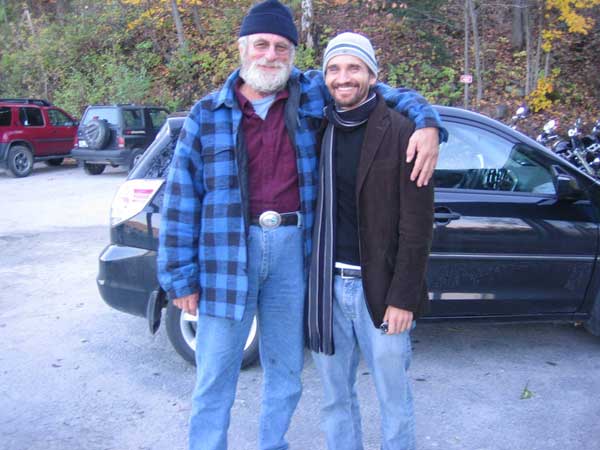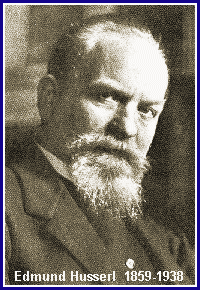CULTURAL NEUROPHENOMENOLOGY
[Updated 20 Sept 2005]
My friend and fellow anthropologist, C. Jason Throop , and I have been developing a special application of biogenetic structuralism which focuses upon the structures of experience. We are interested in integrating the phenomenological methods pioneered by Edmund Husserl with ethnology and neuroscience. We have called this approach cultural neurophenomenology .

Charlie Laughlin and Jason Throop
Cultural neurophenomenology takes the view that the most productive research strategy for discovering the invariant properties of consciousness is trained introspection. After all, our own experience and awareness are the only ones we have direct access to.
Anti-introspectionist biases in science are really pre-scientific cultural hangovers from Church dictums against direct spiritual exploration -- stemming historically from the so-called gnostic heresy. That is, the only legitimate approach to spiritual knowledge, so said the Church, is by way of priests, liturgy and text, not direct personal experience. The idea that Jesus was a profoundly gifted meditator, and that He wanted us to follow Him by meditating and coming to the truth of things by dent of our own contemplation, was considered antithetical to doctrine and worse -- a punishable heresy.
Edmund Husserl taught a different approach to the study of consciousness. He argued that in order to differentiate in experience between what is given by the world and what is added by our own minds in the constitution of experience, we must cultivate a trained introspection.

When we do so (in Husserl's terms, when we master the "reduction") we discover there are invariant properties of mind that condition our experience. For instance, we generate a sense of time by retaining recently past experience ("retention") and anticipating the near future ("protention") and combining these with the actual, on-going "now point" arising and passing in our sensorium. Once we come to understand that this is how ourmind works, the question then naturally arises, what is "real" time in the sense of time in extramental reality, independent of our experience and our knowledge? Also, how does the structure of our nervous system mediate this time sense, and how does culture impact upon our interpretations of temporality?
What Jason and I are doing now is examining a variety of issues regarding experience. Thus far we have utilized this framework to explore the cross-cultural and neuropsychological factors in the experience of emotion, including the emotional aspects of higher states, the role of myth and cosmology in "trueing-up" the relationship between experience and reality, the importance of alternative states of consciousness in furthering the veridicality of experience, the interpenetration of experience and extramental reality, and a modern re-interpretation of Emile Durkheim's "collective effervescence."
Here is a sampling of our joint papers in .rtf format:
Emotion: A View from Biogenetic Structuralism Article published in Biocultural Approaches to the Emotions (ed. By A.L. Hinton). Cambridge: Cambridge University Press, pp. 329-363, 1999. [We show how emotion may be modeled without excluding either a constructivist or a universalist perspective.]
Imagination and Reality: On the Relations between Myth, Consciousness, and the Quantum Sea Paper published in Zygon 36(4):709-736, 2001. [Traditional mythologies contain elements of a universal cosmology that operate to "true-up" individual experience relative to extramental reality.]
Ritual, Collective Effervescence and the Categories: Toward a Neo-Durkheimian Model of the Nature of Human Consciousness, Feeling and Understanding Paper published in the Journal of Ritual Studies 16(1):40-63, 2002. [We explore the implications of Durkheim's controversial claim that all religions are grounded in the real!]
Experience, Culture, and Reality: The Significance of Fisher Information for Understanding the Relationship Between Alternative States of Consciousness and the Structures of Reality Paper published in the International Journal of Transpersonal Studies (in press, 2003). [We explore a way of defining experience, culture and reality in terms of a single concept -- information. This allows us to flip back and forth between frames using the same language.]